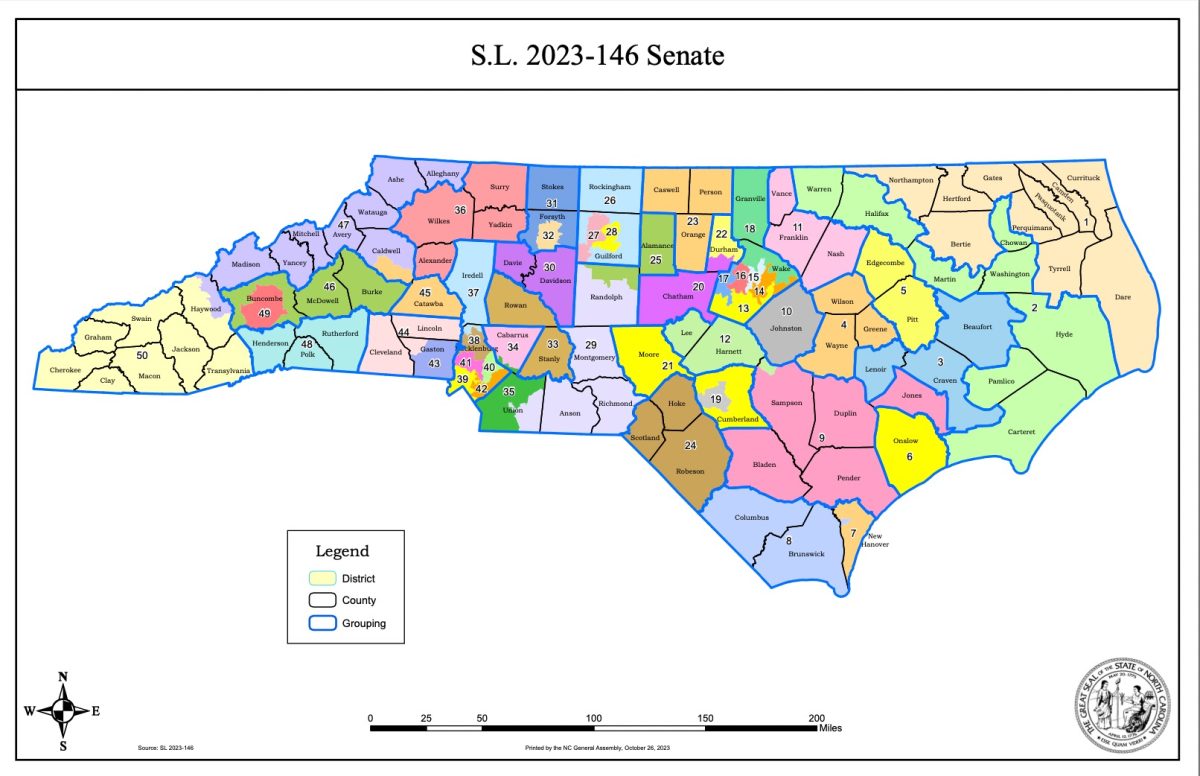Forsyth County and the rest of the United States are suffering from an ongoing opioid epidemic. This crisis affects millions of Americans yearly, yet Wake Forest seems to be impenetrable by the problem, at least so far.
“We enjoy isolation in our Wake Forest bubble,” said Peter Rives, assistant director of Wellbeing. Rives added that Wake Forest students seem to be avoiding opioid abuse on campus, even though it is prevalent throughout Forsyth County.
Although Wake Forest may be lucky enough to avoid the epidemic, the rest of the country is suffering. The National Institute on Drug Abuse reports that between 1999 and 2017, drug overdoses in the United States have increased substantially. Over 70,000 overdose deaths occurred in 2017 alone.
The Center for Disease Control (CDC) reports that of those 70,000 overdose deaths in 2017, nearly 70% were attributed to opioid use. The CDC also reports that trends of opioid use and overdoses have been rapidly on the rise since 1999.
The opioid epidemic affects thousands of people each year. According to a report from the North Carolina Department of Human Health Services (NCDHHS), more than 530 million opioid pills were dispensed to residents of the state in 2017. That’s roughly enough for every one of North Carolina’s 10 million residents to have 53 pills at their disposal.
Darrell Boyles, projects manager at the Addiction Recovery Care Association (ARCA) rehabilitation center in Forsyth County, reported that roughly 80% of opioid use begins with a valid prescription, but that between 14% and 18% of those patients become addicted.
“Most patients only need the medication for around three days to a week, but doctors tend to prescribe 30- to 90-day doses,” Boyles said.
Forsyth County, unlike Wake Forest, has not escaped this epidemic. According to the NCDHHS, 71 people died in Forsyth County of unintentional opioid overdoses in 2017 alone.
The Winston-Salem Journal reported in September that the latest count of opioid-related deaths hit a record high in Forsyth County for the second consecutive year. There were 84 total deaths in 2018, 10 more than in the previous year.
“Forsyth County EMS gets between 5-14 overdose calls each day,” Boyles said. “We always have more patients seeking help than available beds [at ARCA].”
Iris Casey, a freshman from Kinston, N. C., said that while growing up she witnessed people become addicted to opioid drugs in her community. “[My family] knows a couple of individuals who have gotten involved with recreational drugs after using prescription opioids,” she said.
While Wake Forest seems to be avoiding the opioid crisis, there is certainly no lack of substance abuse on campus. Other drugs such as Adderall and alcohol have long been bigger problems for students.
Casey said that substance abuse issues affect some students she knows: “I’ve seen acquaintances start using drugs like Adderall and Xanax, and I’ve seen that a lot.”
L.B. Snipes, a graduate assistant in the Office of Wellbeing, said that when students get stressed out by the academic rigors of life at Wake Forest, they often resort to drug abuse to mitigate that stress.
“Several students I have talked to have said that when they’re on campus, they will use a stronger drug to cope with all the stress,” Snipes said. “But when they’re at home, they’re not stressed out, so they don’t feel the need to use.”
Casey added: “I just found out someone I know is doing hard drugs, and I have seen [them] progressively start to use more. [They] are losing weight and are struggling more academically and socially than [they were] at the beginning of the semester.”
Wake Forest provides many resources on campus for students struggling with substance abuse, including, but not limited, to Student Health Services and the Office of Wellbeing. These places, and others, are safe spaces for students to have conversations around addiction and to get help when needed.
Rives and Boyles both shared a similar sentiment in noting that substance abuse can be detrimental and that addiction does not target one specific group or demographic. Addiction has the potential to affect anyone, including young, ambitious college students.
“Addiction doesn’t discriminate,” Boyles said. “There is no rhyme or reason as to who it affects.”
















